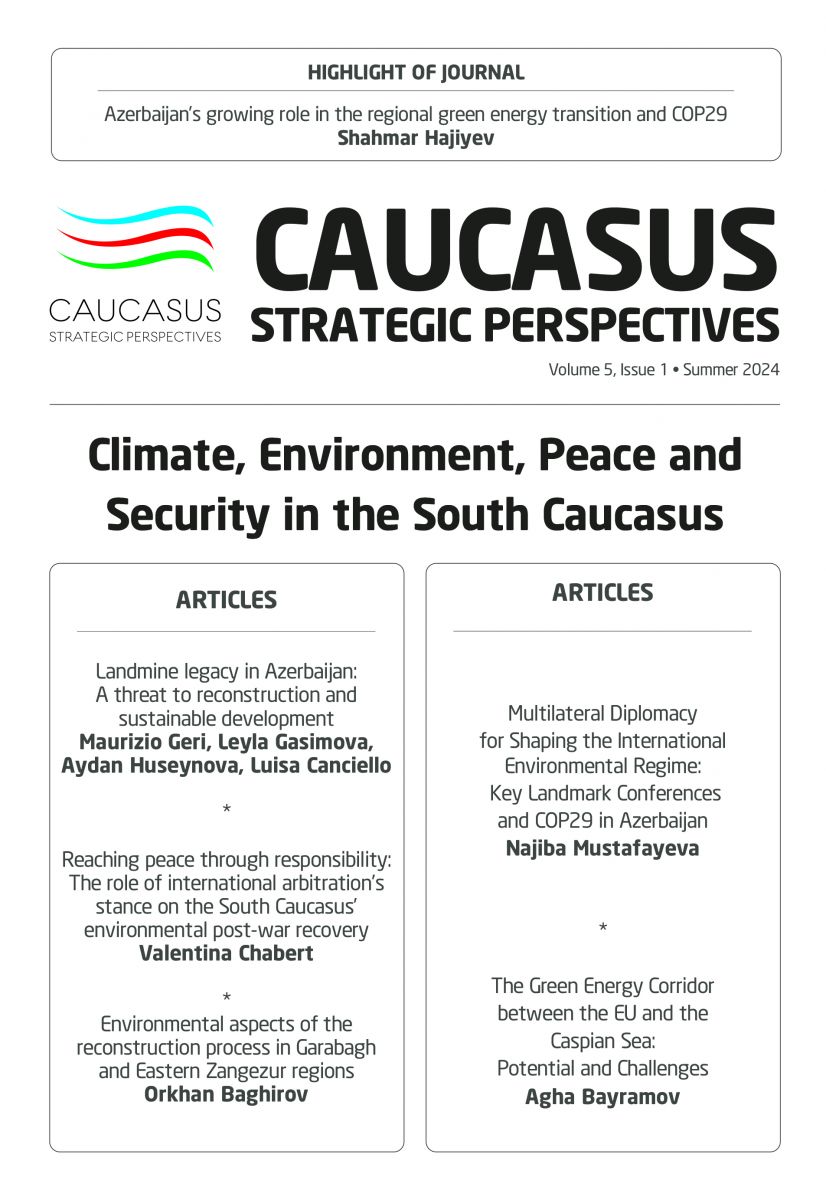Multilateral Diplomacy for Shaping the International Environmental Regime: Key Landmark Conferences and COP29 in Azerbaijan
The development of the international environmental regime has been significantly influenced by multilateral diplomacy, with landmark conferences such as Stockholm (1972) and Rio de Janeiro (1992) establishing key norms and principles of international environmental law. The non-binding but impactful provisions of the Stockholm Declaration and Rio Declaration have been codified further in international environmental treaties that are characterized by a “framework approach” allowing for the use of general arrangements accompanied by dynamic implementation and adaptation through protocols and annexes. These treaties emphasize collective global responsibility while recognizing environmental protection as a common interest. Periodic Conferences of the Parties (COPs) under the UNFCCC exemplify the significance of multilateral diplomacy in advancing global environmental efforts. COP29, to be held in Azerbaijan in 2024, underscores the critical importance of such diplomacy in addressing pressing environmental challenges. This paper examines the role of multilateral diplomacy in shaping the international environmental regime and highlights the necessity of shared responsibility and collective efforts. It emphasizes the evolution of international environmental law and the importance of flexible, adaptive treaty frameworks in addressing global environmental problems.
Latest news
- 12/27/2024 Call for Submissions-Caucasus Strategic Perspectives, Volume 6, Issue 1, Summer 2025 668 views
Popular articles
- 07/18/2022 The Russia–Ukraine War: Perspective of Azerbaijan 4325 views
- 10/14/2020 The Non-Aligned Movement: In Pursuit of Validity and Relevance in the Contemporary Global Order 3307 views
- 10/14/2020 Vicious Circle of the South Caucasus: Intra-Regional Conflicts and Geopolitical Heterogeneity 3291 views
- 10/14/2020 Relevance of Non-Alignment for Azerbaijan’s Foreign and Security Policy 3020 views





